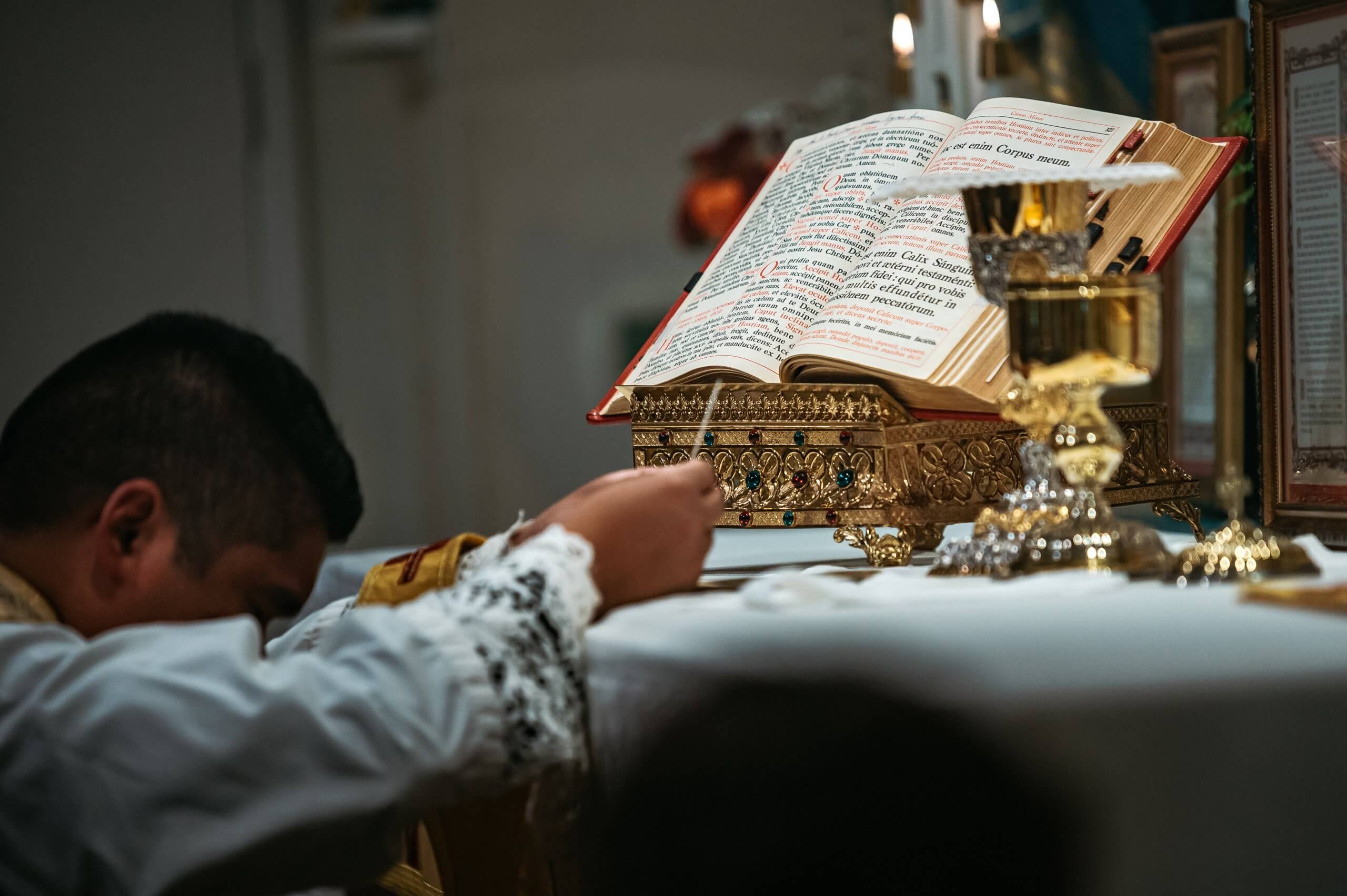|
Getting your Trinity Audio player ready...
|
Being a Catholic in 2024 is no easy endeavor. The West is undergoing a massive de-Christianization, so much so that Catholicism appears to be vanishing from the public sphere. Elsewhere, the number of Christians being persecuted for their faith is on the rise. What’s more, the Church has been struck by an internal crisis that manifests itself in a decline in religious practice, a downswing in priestly and religious vocations, a decrease in sacramental practice, and even a growing dissension between priests, bishops and cardinals which, until very recently, was utterly unthinkable. Yet, among all the things that can contribute to the internal revival of the Church and to the renewal of her missionary zeal, there is, above all, the worthy and reverent celebration of her liturgy, which can be greatly fostered thanks to the example and the presence of the traditional Roman liturgy.
Despite all the attempts that have been made to suppress it, especially during the present pontificate, it lives on, continuing to spread and to sanctify the Christian people who are blessed to be able to benefit from it. It bears abundant fruits of piety, as well as an increase of vocations and of conversions. It attracts young people and is the fount of many flourishing works, especially in schools, and is accompanied by a solid catechesis. No one can deny that it is a vector for the preservation and transmission of the faith and religious practice in the midst of a waning of religious belief and a dwindling number of believers. This Mass, due to its venerable antiquity, can boast of having sanctified countless souls over the centuries. Among other vital forces still active in the Church, this form of liturgical life stands out because of the stability given to it by an uninterrupted lex orandi.
Certainly, some places of worship have been granted, or rather tolerated, where this liturgy can be celebrated, but too often what has been given by one hand is taken back by the other, without, however, ever managing to make it vanish.
Since the massive decline during the period immediately following the Second Vatican Council, every attempt has been made on numerous occasions to revive religious practice, to increase the number of priestly and religious vocations, and to preserve the faith of the Christian people. Everything, except letting the people experience the traditional liturgy, by giving the Tridentine liturgy a fair chance. Today, however, common sense urgently demands that all the vital forces in the Church be allowed to live and prosper, and in particular the one which enjoys a right dating back to over a millennium.
Let there be no mistake: the present appeal is not a petition to obtain a new tolerance as in 1984 and 1988, nor even a restoration of the status granted in 2007 by the motu proprio Summorum Pontificum, which, recognizing in principle a right, has in fact been reduced to a regime of meagerly granted permissions.
As lay people, it is not for us to pass judgment on the Second Vatican Council, its continuity or discontinuity with the previous teaching of the Church, the merits, or not, of the reforms that resulted from it, and so on. On the other hand, it is necessary to defend and transmit the means that Providence has employed to enable a growing number of Catholics to preserve the faith, to grow in it, or to discover it. The traditional liturgy plays an essential role in this process, thanks to its transcendence, its beauty, its timelessness and its doctrinal certainty.
For this reason, we simply ask, for the sake of the true freedom of the children of God in the Church, that the full freedom of the traditional liturgy, with the free use of all its liturgical books, be granted, so that, without hindrance, in the Latin rite, all the faithful may benefit from it and all clerics may celebrate it.
Jean-Pierre Maugendre, Managing Director of Renaissance Catholique, Paris, France
This appeal is not a petition to be signed, but a message to be disseminated, possibly to be taken up again in any form that may seem appropriate, and to be brought and explained to the cardinals, bishops and prelates of the universal Church.
Si Renaissance catholique a l’initiative de cette campagne, c’est uniquement pour se faire l’interprète d’un large désir en ce sens qui se manifeste dans l’ensemble du monde catholique. Cette campagne n’est pas la sienne, mais celle de tous ceux qui y participeront, la relayeront, l’amplifieront, chacun à leur manière.


